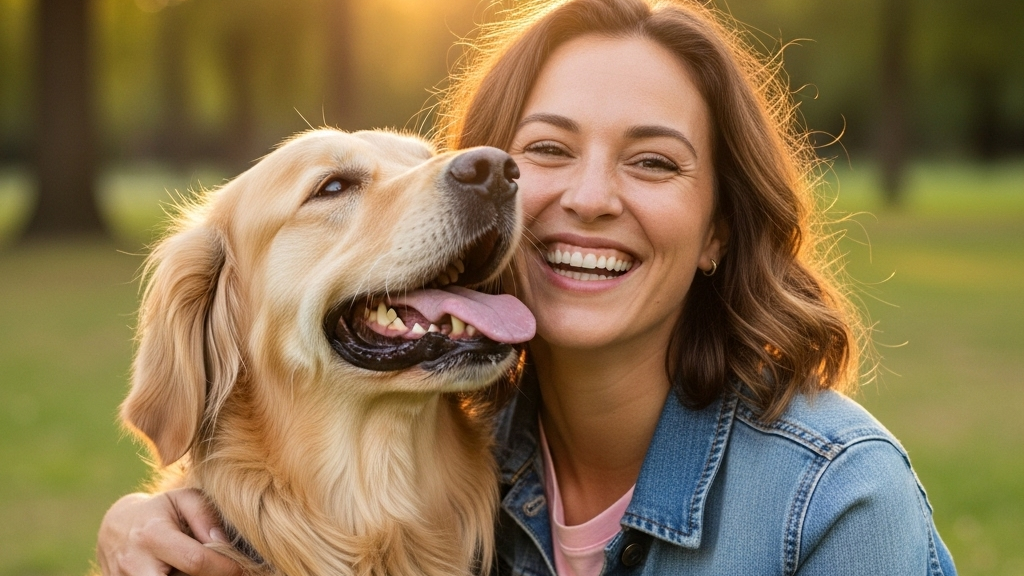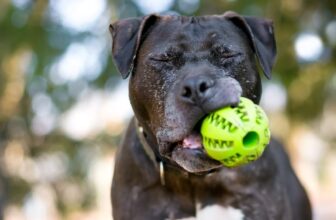
Check out our latest products
Dog parents have more influence on their furry friend’s personality than you might realize. Just like children, dogs learn from their environment and the people who care for them. Understanding how your actions and choices shape your dog’s character can help you raise a confident, well-behaved companion.
Breed vs. Individual Personality
While breed gives you a general idea of what to expect, each dog is still unique. Think of breed traits as a starting point – your dog’s final personality comes from:
- Their breed background
- Early socialization as a puppy
- Training and experiences with you
- Their individual genetics
Early Experiences Matter Most
Your dog’s personality begins forming from puppyhood. The experiences you provide during their first year are especially important. Proper socialization helps create a friendly, confident adult dog. When you expose your puppy to different people, places, sounds, and situations in a positive way, you’re building their confidence. Dogs who miss out on these early experiences may become fearful or reactive as adults.
Your Energy Affects Your Dog
Dogs are experts at reading human emotions. If you’re anxious or stressed, your dog will often pick up on these feelings. When you remain calm and confident during new situations, you teach your dog that there’s nothing to worry about. For example, if you tense up when you see another dog approaching, your dog learns that other dogs might be something to fear.
Consistency Builds Confidence
Dogs thrive on routine and clear expectations. When you consistently enforce the same rules and provide predictable daily schedules, you help your dog feel secure. A dog who knows what to expect is generally more relaxed and well-behaved. Mixed messages or constantly changing rules can create anxiety and confusion.
Training Shapes Character
How you train your dog directly impacts their personality. Positive training methods using treats, praise, and patience help build a confident, eager-to-please dog. Harsh training methods can create fearful, anxious, or even aggressive behaviors. Regular training sessions also provide mental stimulation that many dogs crave.
Your Response to Problems Matters
When behavioral issues arise, your reaction plays a huge role in whether these problems get better or worse. Protecting an anxious dog from overwhelming situations while gradually building their confidence works better than forcing them to “face their fears.” Similarly, staying calm and redirecting unwanted behaviors is more effective than punishment.
Structure Provides Security
Dogs need structure to feel safe and confident. This includes having designated spaces like a crate or bed where they can retreat, consistent meal times, and regular exercise schedules. When dogs know what’s expected of them and when good things happen, they’re more likely to be relaxed and happy.
The Takeaway
Your daily interactions, training methods, and lifestyle choices all contribute to shaping your dog’s personality. By providing consistent, positive experiences and clear guidance, you help your dog develop into their best self. Remember, every dog is an individual with their own unique traits, but your influence as their parent plays a major role in how those traits develop.
If you’re concerned about your dog’s behavior or personality changes, always consult with your veterinarian or a qualified dog behaviorist for professional guidance.



![[PETHROOM] Cat Nail Clipper Trimmer for Indoor Cats with Circular Cut Hole (2mm) | Premium Sturdy Stainless Steel Blade Cat Claw | Safe, Easy, Accurate, Quiet & Fast | Avoid Overcutting](https://m.media-amazon.com/images/I/6156hi88deL._AC_SL1298_.jpg)
![[PETHROOM] Professional Eye Comb for Pets | Stainless Steel Tear Stain Remover for Cats & Dogs | Gentle Round-Head Grooming Tool | Compact & Portable for Eye Gunk Removal](https://m.media-amazon.com/images/I/71+W758uwXL._SL1500_.jpg)









